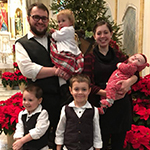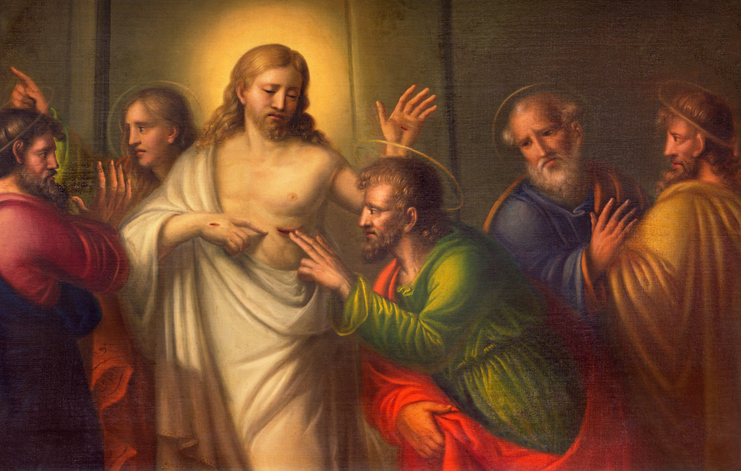One of my favorite books in high school was Bram Stoker’s “Dracula.” There was one detail of the story in particular that intrigued me. Dracula, even though he was spectacularly powerful, couldn’t enter someone’s house unless he was invited in. I was reminded of that detail recently when I read Bishop Barron’s reflection on the abuse and coverup surrounding Archbishop McCarrick. Bishop Barron spoke about how sexual abuse within the Church is truly demonic activity before saying:
“Now I can hear people saying, ‘So Bishop Barron is blaming it all on the devil.’ Not at all. The devil works through temptation, suggestion, and insinuation—and he accomplishes nothing without our cooperation.”
The devil accomplishes nothing without our cooperation. A fallen angel of light, a pure spirit that’s unbound by time and space, needs our consent, our freedom, to accomplish his work. In “Theology for Beginners,” the apologist Frank Sheed spoke of Satan and original sin this way:
“The disease admitted into humanity by the choice of self against God was given every chance to run its course, work out its logic. God’s providence did not desert man; those who implored him were not left unaided; but it was Satan’s carnival all the same. He had gained no rights by his success over Adam, but he had gained immense power; he was the prince that this world obeyed.”
It was Adam’s free choice to reject God that gave Satan power over this world, and it’s our free choices to reject God that allow Satan to continue his rule. But God left our original parents with hope. God said that one day a descendant of Eve would crush the head of the serpent. And that son of Eve is who we see at work in the Gospel reading today.
If you look at the ministry of Jesus in all the Gospels, you will see a conqueror, a king returning to reclaim territory from his enemy. Jesus does this by revealing himself first and foremost as a healer. He undoes the effects of sin by bringing peace to the suffering, health to the sick, life to the dead, and freedom to the possessed. Jesus spoke with the power and authority of God to not only heal his people but to glorify them. “For the Son of God became man so that we might become God” (Catechism 460).
After Jesus ascended to Heaven, he sent the Holy Spirit to heal, empower, and glorify his people. I think that we need to forget the idea of going to Heaven after we die. Heaven is union with God, participation in God’s divine nature, and that begins now! As soon as we are baptized, we become members of Christ’s Body, heirs to the Father’s divine life, and we receive God’s supernatural life within us – grace. Every sacrament is efficacious because of the power of the Holy Spirit, and it’s the grace we receive from the Sacraments that transforms us into the likeness of Christ. At every Mass, as he mixes the water and wine, the priest says, “By the mystery of the water and wine may we come to share in the divinity of Christ who humbled himself to share in our humanity.”
Therefore we are given the same power and authority of Christ. With the name of Jesus, we can do not only the same things He did but greater things. The Act of the Apostles is one account after another of the mere men doing the work of Christ. As Saint Paul says in the first reading today, the Spirit has given each of us “the mind of Christ.”
But, remarkably, all of this rests on our free will. Just as it is through our choices that Satan has power in this world, so it is through our choices that we can accept grace and do powerful works in Jesus’ name. In “Mere Christianity,” C.S. Lewis says:
“Every time you make a choice you are turning the central part of you, the part of you that chooses, into something a little different than it was before. And taking your life as a whole, with all your innumerable choices, all your life long you are slowly turning this central thing into a heavenly creature or a hellish creature: either into a creature that is in harmony with God, and with other creatures, and with itself, or else into one that is in a state of war and hatred with God, and with its fellow creatures, and with itself. To be the one kind of creature is heaven: that is, it is joy and peace and knowledge and power. To be the other means madness, horror, idiocy, rage, impotence, and eternal loneliness. Each of us at each moment is progressing to the one state of the other.”
Will we choose to let Dracula in the door? Will we choose to make Satan prince of our life and prince of this world? Or will we choose to accept the supernatural life that Jesus offers us and let him heal the effects of sin in our own lives and in the world?

Paul Fahey is a husband, father, and a parish director of religious education. He can be found at his website, Rejoice and be Glad: Catholicism in the Pope Francis Generation.
